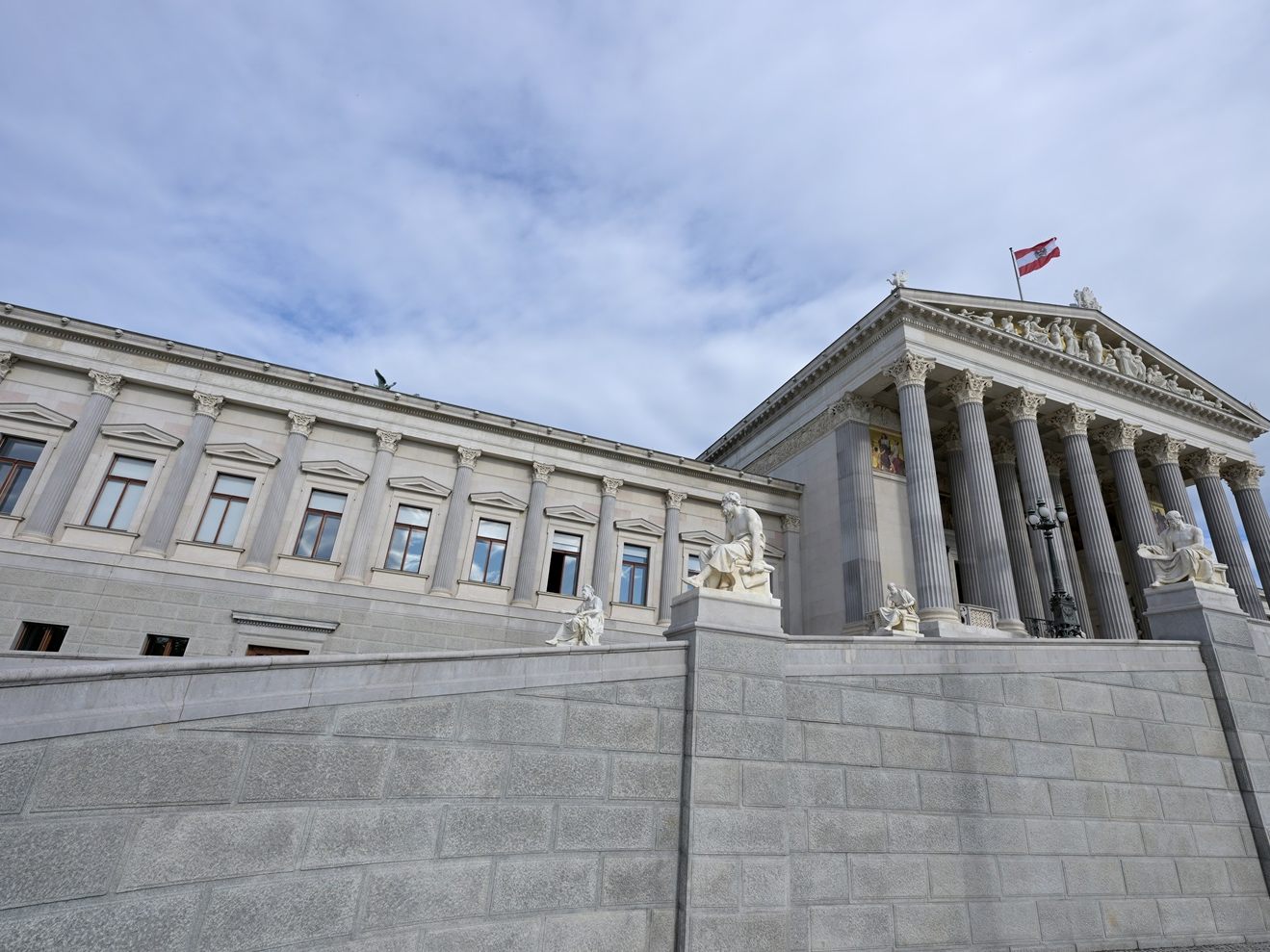Squabble Over "Letters of Intent" to EU Commission

The meeting largely turned into a verbal exchange between SPÖ member Kai Jan Krainer and Mayr, who forwarded the letter as a messenger of the negotiators to the EU Commission.
Criticism from SPÖ
The letter to the EU Commission lists austerity measures of 6.4 billion for the year 2025, which - as Mayr as well as ÖVP and FPÖ members emphasized - are "declarations of intent". While some points such as the abolition of the climate bonus and educational leave are specifically outlined, they have remained rather vague with regard to subsidies and measures in the field of health insurance. The SPÖ had already made the Brussels letter the subject of a "current hour" at the most recent National Council meeting. On Friday, the Social Democrats, as well as the Greens and NEOS, criticized that the parliament was not informed in advance or at least simultaneously with the EU Commission. According to Mayr, the process was very transparent, and the entire process can be viewed on the Ministry of Finance's website.
The measures reported to Brussels are "partly not yet final", Mayr emphasized again. The coalition negotiators had assured the Commission that measures that are not implemented in detail as described in the letter would be replaced by other savings. It is certain that they want to come down to the EU average with the subsidies. Because the tax rate in Austria is already very high, there is also a clear focus on expenditure-side savings. The plan has a "nice buffer".
"Stable Declarations of Intent"
For FPÖ member Arnold Schiefer, Krainer's inquiries about the details of the austerity plans sent to Brussels were "phantom questions". These are "stable declarations of intent", not laws. The measures of course still need to be widely discussed in parliament and are only the "starter package" and a signal to Brussels, with which they have bought themselves a breather, he said with a view to a double budget 2025/26.
"Without reforms, we will not be able to move this oil tanker," says Schiefer. We will ensure that the measures are socially acceptable and ecologically sound, and do not choke off the economy. For economist Barbara Kolm (FPÖ), preventing a deficit procedure was essential. Austria would have been "placed under guardianship" and exposed to "EU regulatory frenzy," she warned.
Pinks Against EU Deficit Procedure
She hopes that there will be more consensus on the measures planned by the FPÖ and ÖVP than the term "declarations of intent" suggests, emphasised NEOS economic spokesperson Karin Doppelbauer. Because without reforms, the Commission could still initiate a deficit procedure, and the NEOS would not want that. She critically noted that only 240 million of this should be allocated to reforms. Green budget spokesperson Jakob Schwarz warned that some of the planned procedures could choke off the slightly rebounding economy. He also had the impression that savings were being made primarily at the expense of families and that the wealthy were contributing very little.
SPÖ representative Krainer was extremely dissatisfied with the information provided by the Minister of Finance. He repeatedly complained loudly that his questions were not being answered, such as the figures for the deficit for 2024. For the federal deficit, Mayr estimated 19.1 billion euros, which is 1.7 billion better than budgeted. The Maastricht deficit is expected to be around 3.5 percent of gross domestic product (GDP). Mayr caused annoyance here for Krainer because he could not separately present the share of the federal government or social insurance carriers. Doppelbauer also demanded an early cash check to be able to classify the upcoming measures in the budget.
Involvement of Parliament
There were also lengthy discussions between Mayr and the opposition about the technical question of whether the austerity measures sent to Brussels already constituted a "project" and how intensively the parliament must therefore be involved. When transmitting the austerity measures, he was merely concerned with complying with existing EU fiscal rules, Mayr emphasised. Accordingly, it was not a project that required the mandatory involvement of the National Council and the Federal Council.
(APA/Red)
This article has been automatically translated, read the original article here.





